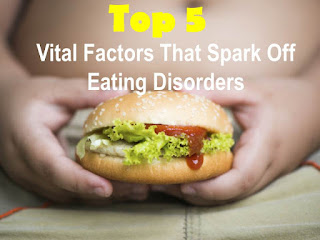The internal voices murmur that you'll never be happy until you lose weight , that your value is estimated by what you look like.True happiness and confidence originate from cherishing yourself for who you really are—and that is possible with recovery for eating problems.
And keeping in mind that it might appear as though there's no break from your eating problem, for which you need eating disorder treatment recovery is inside your span. With treatment, support, and these self improvement procedures, you can discover more beneficial approaches to adapt to negative emotions, defeat your eating problem, and increase true self-confidence.
7 Cardinal Signs That Rule the World of an Alcohol Addict
How would I start recovery from a Eating disorder ?
The way to Eating problem recovery begins with admitting you have a disorder and taking eating disorder treatment.
● This confirmation can be intense, particularly in case regardless you're sticking to the conviction—even in the back of your brain—that weight reduction is the way to joy, certainty, and achievement.
● Be that as it may, conquering an eating disorder is about more than surrendering unhealthy eating practices for which you can reach out to outpatient rehab atlanta.
Genuine recovery from Eating problems includes figuring out how to:
● Listen to your sentiments.
● Tune in to your body. Acknowledge yourself.
● Adore yourself.
This may appear to be a great deal to handle, yet simply recollect that you're not the only one. Help for eating disorder is out there at eating disorder treatment centers; you should simply inquire!
The initial step to recovery : Reaching out for help
It can be startling and humiliating to look for help for a eating disorder or any eating problems. However opening up about the disorder is an essential step on the road of discovery.It's important to pick someone truly listen without judging you or rejecting you. This could be a dear companion or relative or an adolescent pioneer, educator, or school guide you trust. Or you may be more comfortable in trusting a specialist or doctor for your eating problems.
Tips for talking with somebody about your eating problem
There are no rigid guidelines for educating somebody concerning all your Eating problem. Be careful about picking the correct time and place—some private place where you won't be surged or interfered.
● Beginning the discussion. From that point, you might need to discuss when your eating problem began, the emotions, thoughts, and practices included, and how the confusion has affected you.
● Be patient. Your companion or relative will have their own enthusiastic response to finding out about your eating problem. They may feel stunned, defenseless, befuddled, pitiful, or even irate. They may not realize how to react or encourage you. Give them an opportunity to process what you're letting them know. It's additionally vital to instruct them about your particular Eating problem.
Be explicit about how the individual can best help you. For instance, checking in with you frequently about how you're feeling, helping you discovering treatment, or discovering approaches to help your recovery without transforming into the sustenance police.



